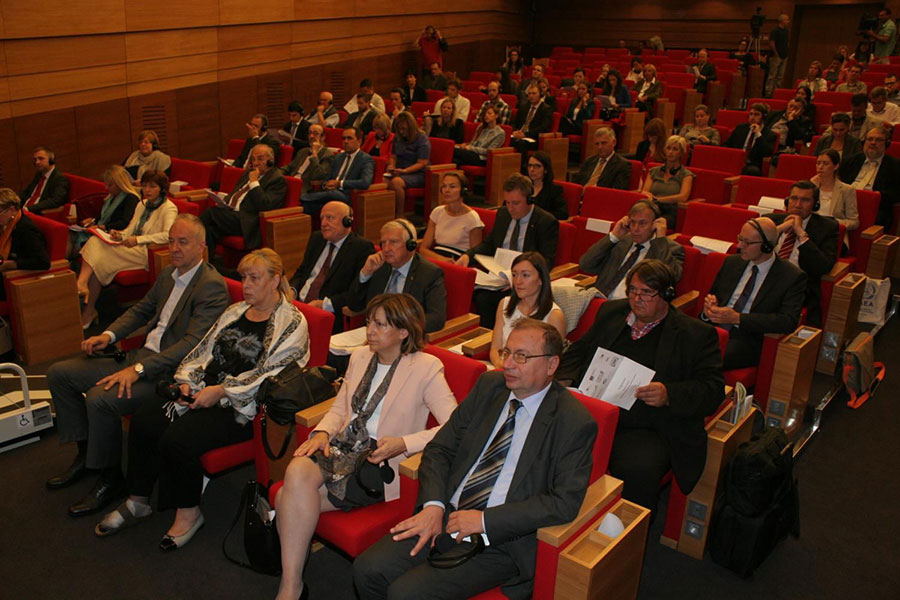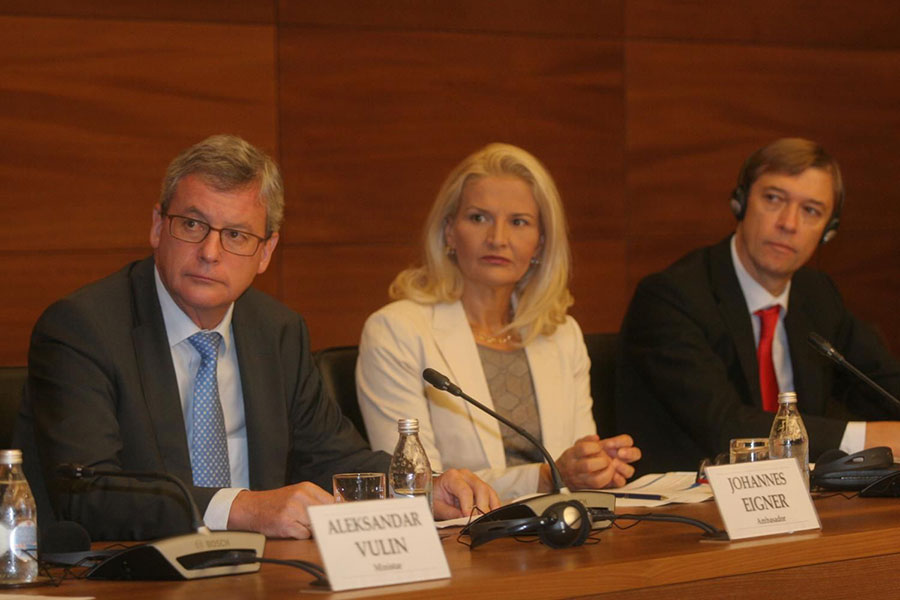Speaking at the conference “Challenges of the Republic of Serbia in the EU accession process” Deputy Head of the EU Delegation to Serbia Oscar Benedikt said Serbia laid the foundations of its future EU membership in previous years during which it opened four important negotiating chapters.
“We have the foundations, but in the coming three to four years we will be focused on delivering results, in other word the implementation. You can adopt the best law possible, but if not enforced, it is all in vane,” Benedikt said.
He said chapters 23 and 24 were opened thanks to good action plans which laid out precisely what, how and when, as well as with what money, things should be done.
“What matters to us is independent and efficient justice, without it, issues may arise, as was the case with certain countries during the accession process. Fighting poverty is also important, in Serbia we have people living on three euros a day,” he said.
Benedikt said Serbia might count on the European Commission and EU Delegation’s support when it comes to money and expertise.
Minister of Labour, Employment, Veteran and Social Affairs Aleksandar Vulin said “Serbian Government was turned to the EU, not because it saw the EU as unerring and impeccable, but because it thought certain standards enforced in the EU are good for Serbia.”

FoNet
“I cannot say whether the EU would be open to us in a year or two, in 2020 or 2023. I cannot say anything about the political climate but what I can say is that social dialogue, fighting poverty, free movement of workers will make my country better and more liveable,” Vulin said.
Vulin said the Ministry and social partners were faced with two important chapters – 2, Free movement of workforce and 19, Social policy and employment.
“The Union is not a goal, it is a means of securing better life for our citizens,” he said.
Austrian Ambassador in Serbia Johannes Eigner said his country was strongly committed to the enlargement of the EU to the Western Balkans, noting that “there cannot be a grey area or a black hole” stretching all the way from Croatia to Greece.
“Serbia is an important partner of the EU, and I am convinced Serbia is the driving force of EU accession in the region,” Eigner said.
Head of Serbia’s EU Negotiating Team Tanja Miscevic said social justice and solidarity were the key elements for the development of a stable society.
“When we think about negotiating chapters we always bear in mind individual people and the effect chapters would have on their lives,” Miscevic said.
She said the future of Europe was subject to healthy debates, adding that Serbia do not have the slightest doubt about its own future because it wants to become an EU Member State.




